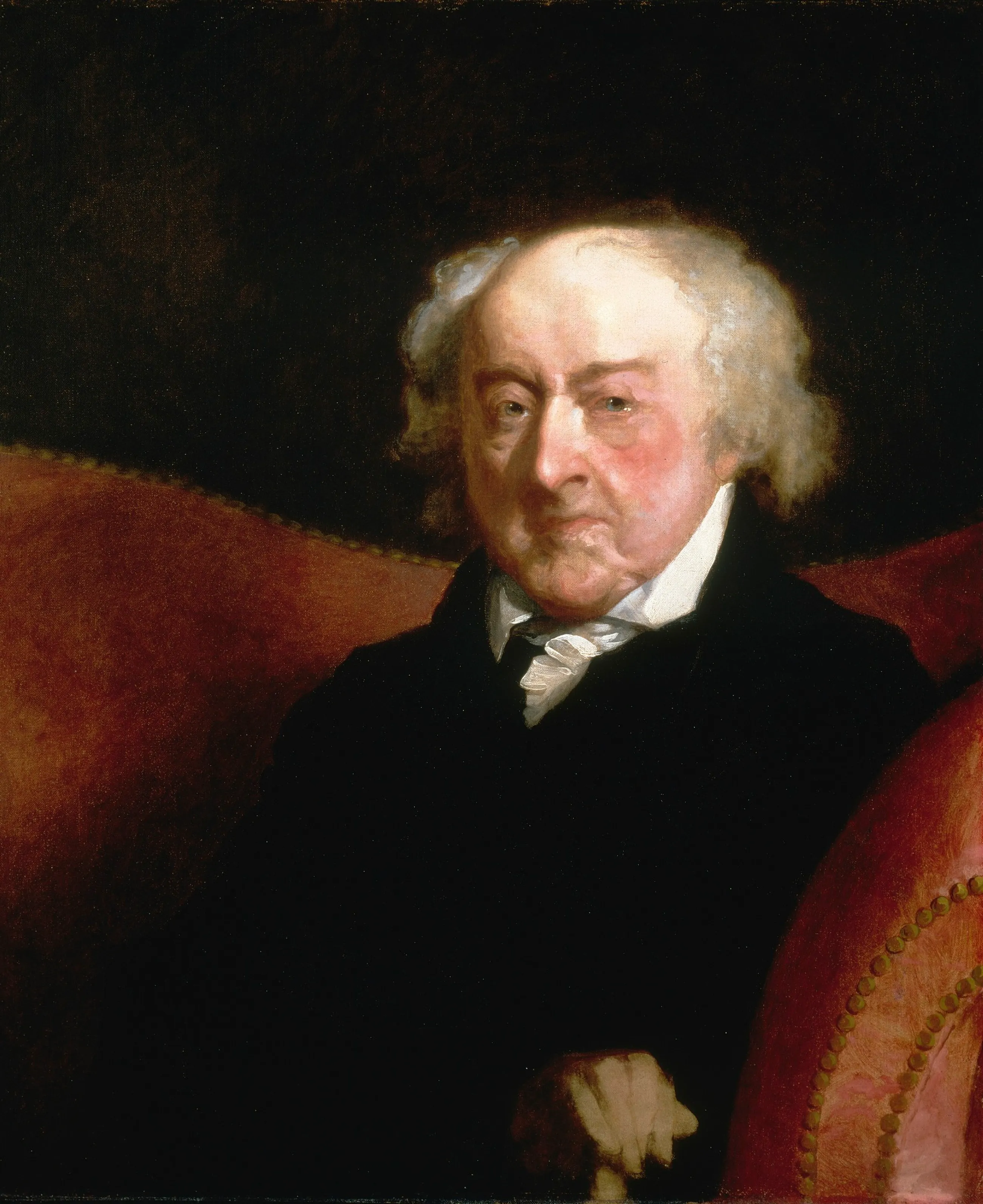On 8 July, Monroe and his company stopped in Quincy to meet former President John Adams (who was also the father of Monroe’s secretary of state).
Gen. Swift wrote in his memoir:
Mr. Adams at first mistook me for the son of his brother lawyer, Samuel Swift, and poured out his commendation, saying: “I have written to Mr. [William] Wirt my opinion of the merits of that Whig, who fell a martyr to the fury of [Thomas] Gage.”In fact, Thomas Johnson of Maryland was the Continental Congress delegate who had nominated George Washington to be commander-in-chief. Adams told a great story about making that nomination, but the Congress’s records contradict it.
I replied: “It was my grandfather, and you gave me my cadet’s warrant eighteen years ago,” upon which he was pleased to subjoin some civil commendation. The conversation naturally attracted the attention of the whole dinner party; and it was a scene of deep interest to hear the old man scan the days of his life in Congress, when he nominated Washington, etc.
As for the mention of William Wirt, in this period Adams was on a campaign to undercut Wirt’s biography of Patrick Henry, which he felt gave too much credit for the Revolution to that legislator and Virginians as a whole. (Awkwardly enough, Wirt was President Monroe’s attorney general.) The former President was writing long letters to other authors laying out his version of history and encouraging William Tudor, Jr., son of his former law clerk, to write a biography of James Otis, Jr.
Seven years later, having retired from the army to become a civil engineer, Swift wrote back to the former President about his family:
When I had the honour to be at your residence in 1817 (while accompanying President Monroe) I was gratified by some account which you were pleased to give me, of my Grand Father Samuel Swift, formerly a Lawyer of Boston, whom you designated as a friend of yours & as the “Widows friend”—& whose name you had before mentioned, in some Printed Letters, as a distinguished Whig:—It is natural &, with just views, it is commendable in man to reflect with interest upon the conduct & character of his progenitor.—If Adams wrote back over the next two years before his death, that letter doesn’t survive. But Swift’s letter certainly lays out the image of his grandfather that he wanted to confirm.
I have heard that my G. Father was a zealous & a effective Whig—that he died in 1775 a Prisoner & Martyr under the Tyrrany of Gage,—that he was foremost & useful in Public Meetings in urging his fellow Citizens to resist oppression & especially to resist Gages call to the Bostonians to deliver up their Arms:—The premature death of their G Father led to the dilapidation & final loss of his Property while Boston was a Garrison,—This then Young family driven to various parts of this Country & made Poor, were dispersed, & thus we know little of this G. Father except from tradition.—
If you will at a leisure moment cause an amanuensis to note to me any information of the Character & Conduct of Saml. Swift & especially as touching the great struggle for Independence, it will be received as a distinguished favour,—One of my objects in taking this liberty is to be Enabled to tell my Six Sons what share their progenitor may have had in contributing to bring about that War which made a nation Free & Happy!—
TOMORROW: Swift family sources.

No comments:
Post a Comment